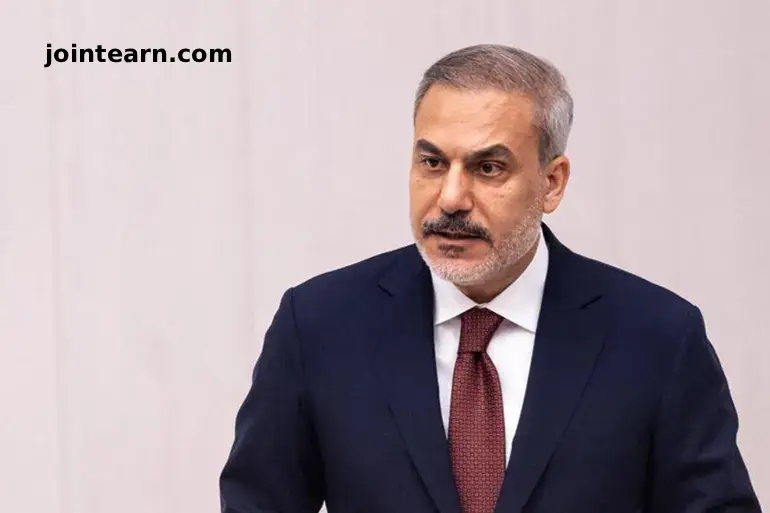
Istanbul, Turkiye – Turkiye has issued a strong call for Israel to immediately stop what it describes as ongoing violations of the United States-brokered ceasefire in the Gaza Strip. The statement came after a high-level diplomatic summit in Istanbul on Monday, where leading Arab and Muslim nations gathered to discuss an international stabilisation force for Gaza, a key component of the US-led plan to end the conflict.
Turkish Foreign Minister Hakan Fidan spoke firmly after talks with top diplomats from Qatar, Saudi Arabia, the UAE, Jordan, Pakistan, and Indonesia. He emphasized that Israel has failed to meet its obligations under the ceasefire agreement, which includes allowing humanitarian aid into Gaza without obstruction.
“We do not want the genocide to restart in Gaza. We want the ceasefire to continue and move toward a permanent, two-state peace solution,” Fidan said during a press briefing in Istanbul.
He added that Israeli attacks have killed nearly 250 Palestinians since the ceasefire took effect on October 10, 2025, and noted that the international community must maintain pressure on Israel to comply.
Escalation of Violence Amid Fragile Ceasefire
Despite the ceasefire, recent days have seen a sharp rise in military actions. Last week, Israel launched a series of deadly strikes across the Gaza Strip, reportedly in reaction to what it described as a breach by Hamas regarding prisoner exchange arrangements. Over 100 Palestinians were killed in the ensuing bombardments, including 46 children.
The ceasefire, aimed at halting a months-long war that devastated the enclave, remains on shaky ground. Although Israel stated it would resume the terms of the deal after what it called a “technical misunderstanding,” air and ground attacks continue to be reported.
At the same time, aid efforts are faltering. According to the UN’s Office for the Coordination of Humanitarian Affairs (OCHA), only half of Gaza’s households have seen any improvement in access to basic necessities like food and medicine since the ceasefire began. In northern Gaza, conditions are dire, with zero aid trucks entering through direct crossings since mid-September.
Between October 10 and 31, Turkiye reported an average of just 145 aid trucks arriving daily—far short of the 600 trucks promised under the ceasefire terms.
Debate Over International Stabilisation Force for Gaza
The Istanbul summit addressed another controversial topic: the proposed International Stabilisation Force (ISF) for Gaza. Part of a 20-point peace plan unveiled by US President Donald Trump, the ISF would oversee the security and political transition in post-conflict Gaza.
However, details remain murky. Delegates from Arab and Muslim-majority nations expressed concerns over the lack of clarity from the UN Security Council on the ISF’s mandate, operating rules, and composition.
Turkiye has said it wants Palestinians—not foreign troops—to oversee daily governance and security in Gaza. Israel, meanwhile, has rejected the idea of Turkish troops participating in any peacekeeping force, creating further uncertainty over which countries may be involved.
Former UN adviser Miroslav Zafirov told Al Jazeera the ISF must be legally sound, clearly defined, and in line with international law to gain legitimacy.
“There are far too many unanswered questions in the current proposal. Without clarity, the ISF risks becoming ineffective or counterproductive,” he said.
Regional Implications and Diplomatic Challenges
Turkiye’s leadership has repeatedly criticized what it calls Israel’s unwillingness to pursue a genuine two-state solution. Minister Fidan said the international community “overestimated” Israel’s interest in peace.
“Israel never intended to approve a two-state solution. Yet, much of the world has shaped its strategy on the assumption that it would,” Fidan said.
The summit showcased growing regional engagement from Muslim-majority countries in defending Palestinian rights and sovereignty. Qatar, Saudi Arabia, and Pakistan all emphasized the need for a sustainable, just solution that respects the human rights of Palestinians and holds violators of ceasefire arrangements accountable.
As the Gaza ceasefire teeters, the world watches closely to see whether the proposed stabilisation force—and broader diplomacy—will succeed in preventing further bloodshed.


Leave a Reply